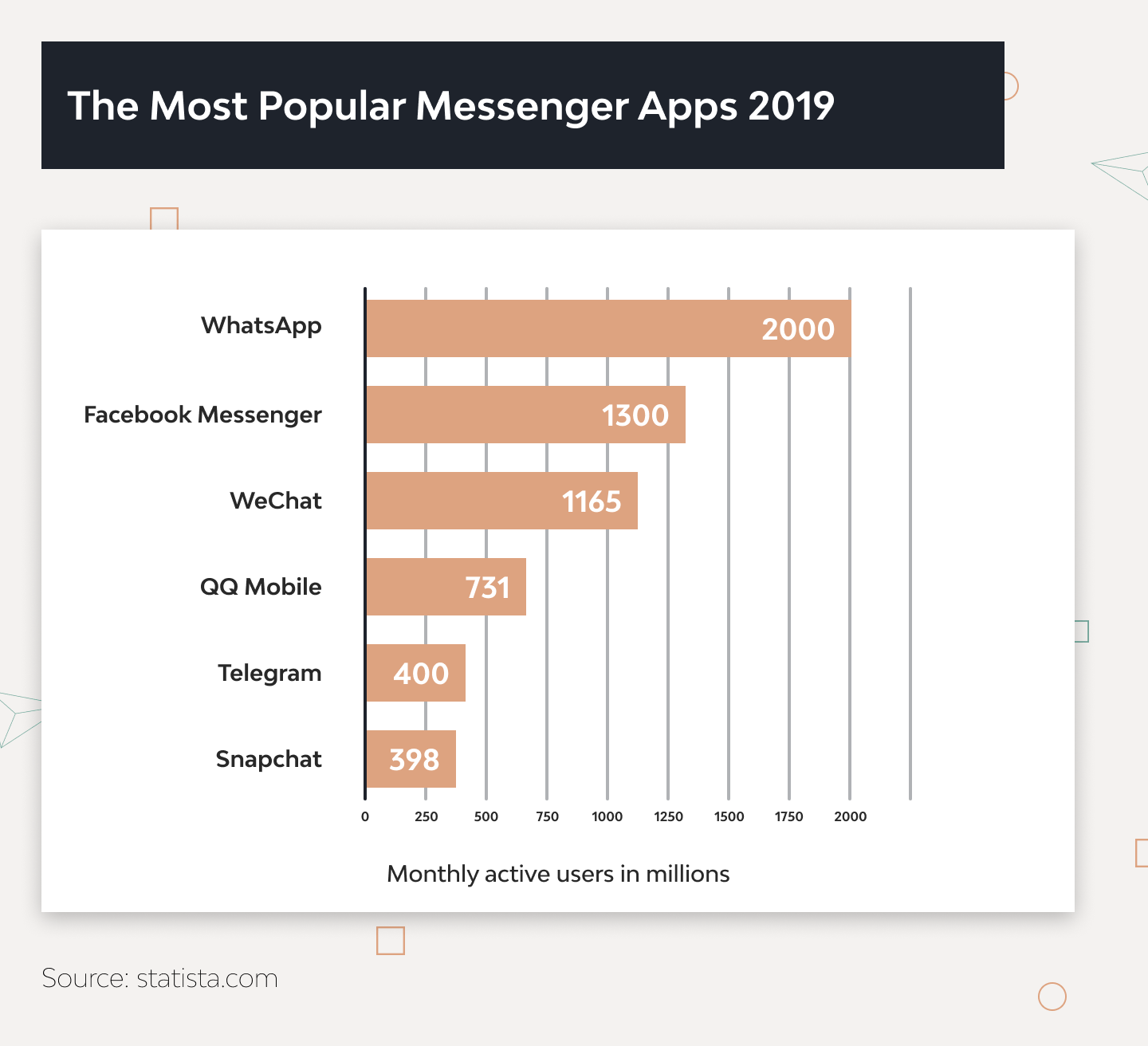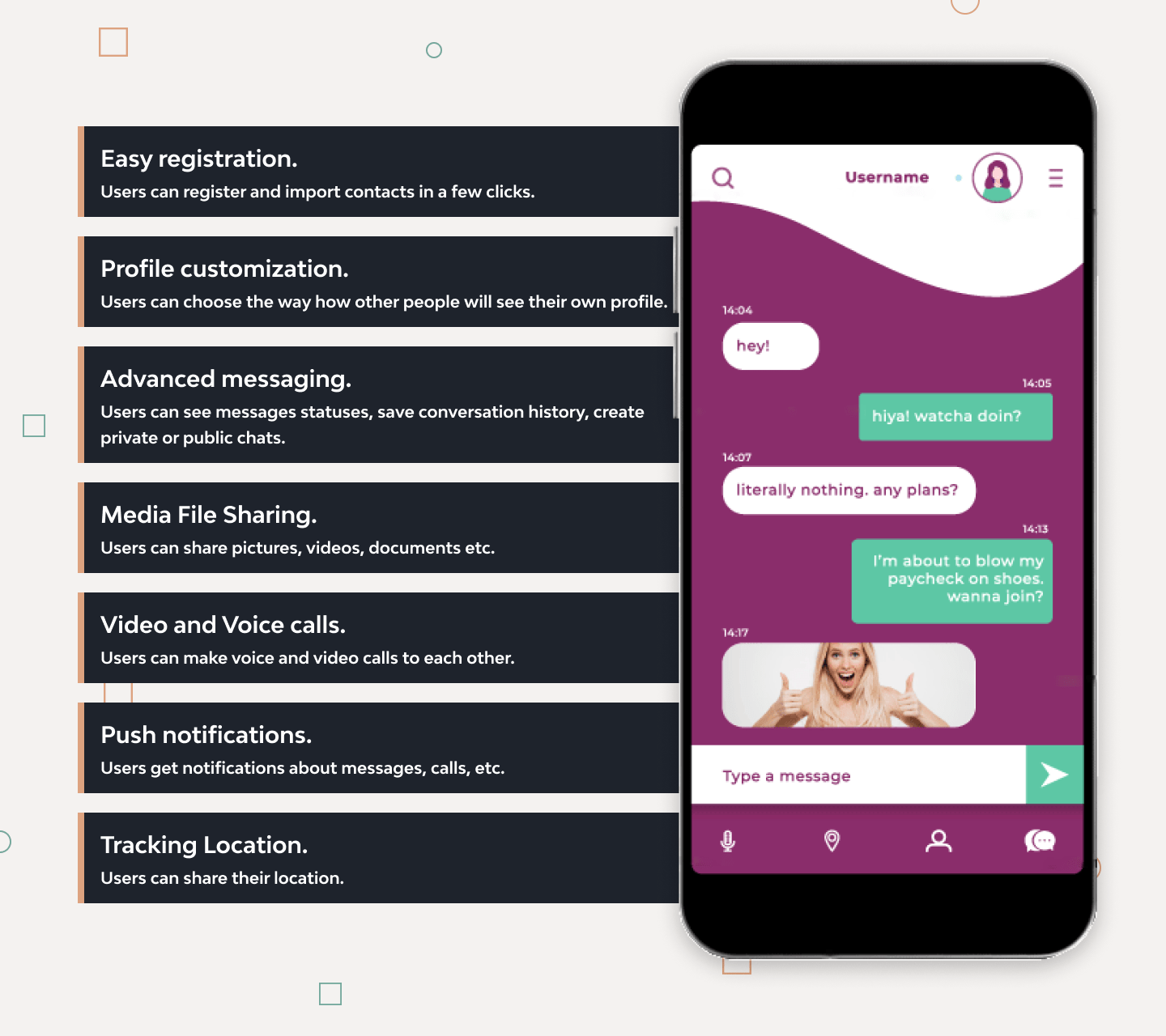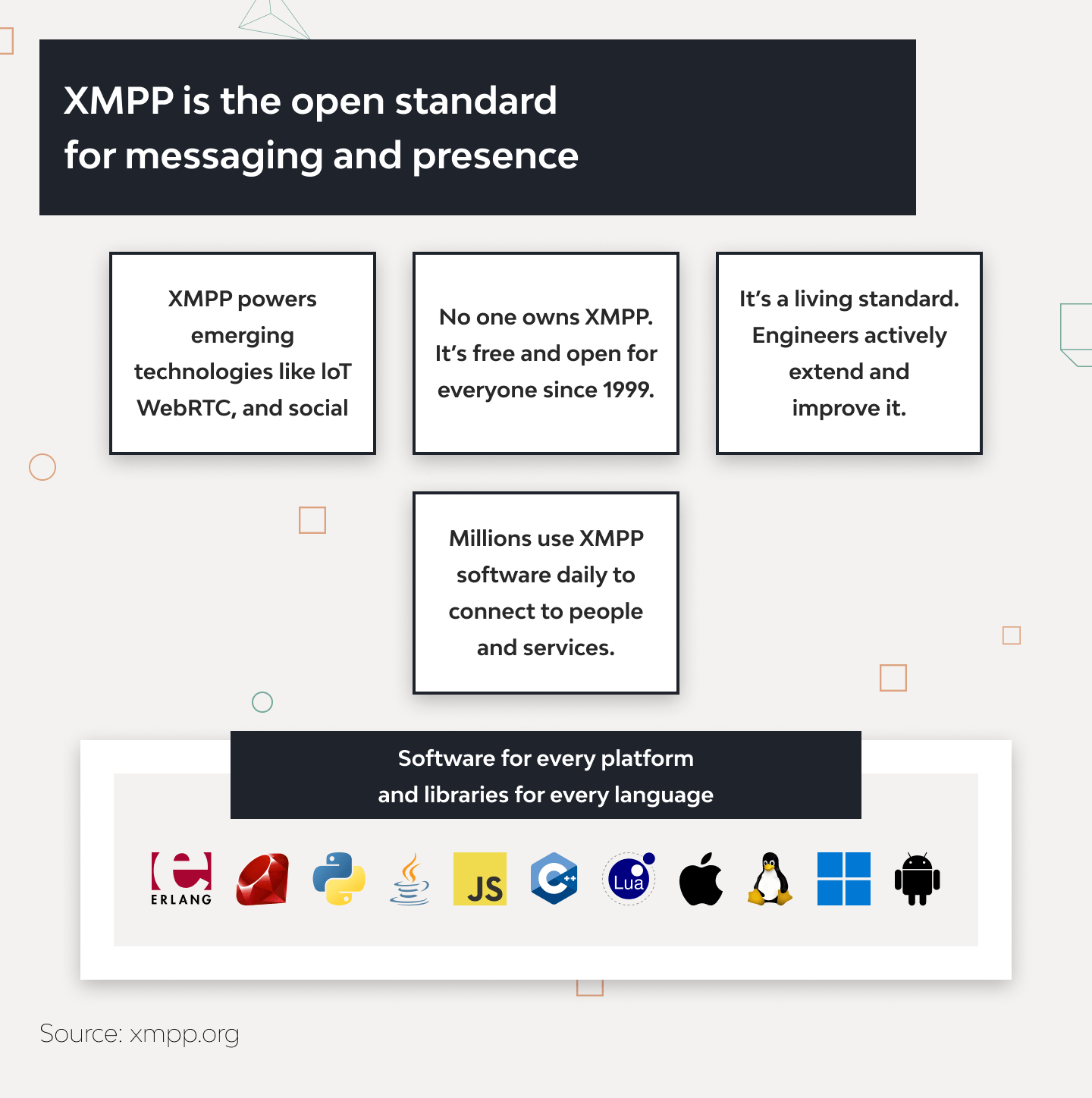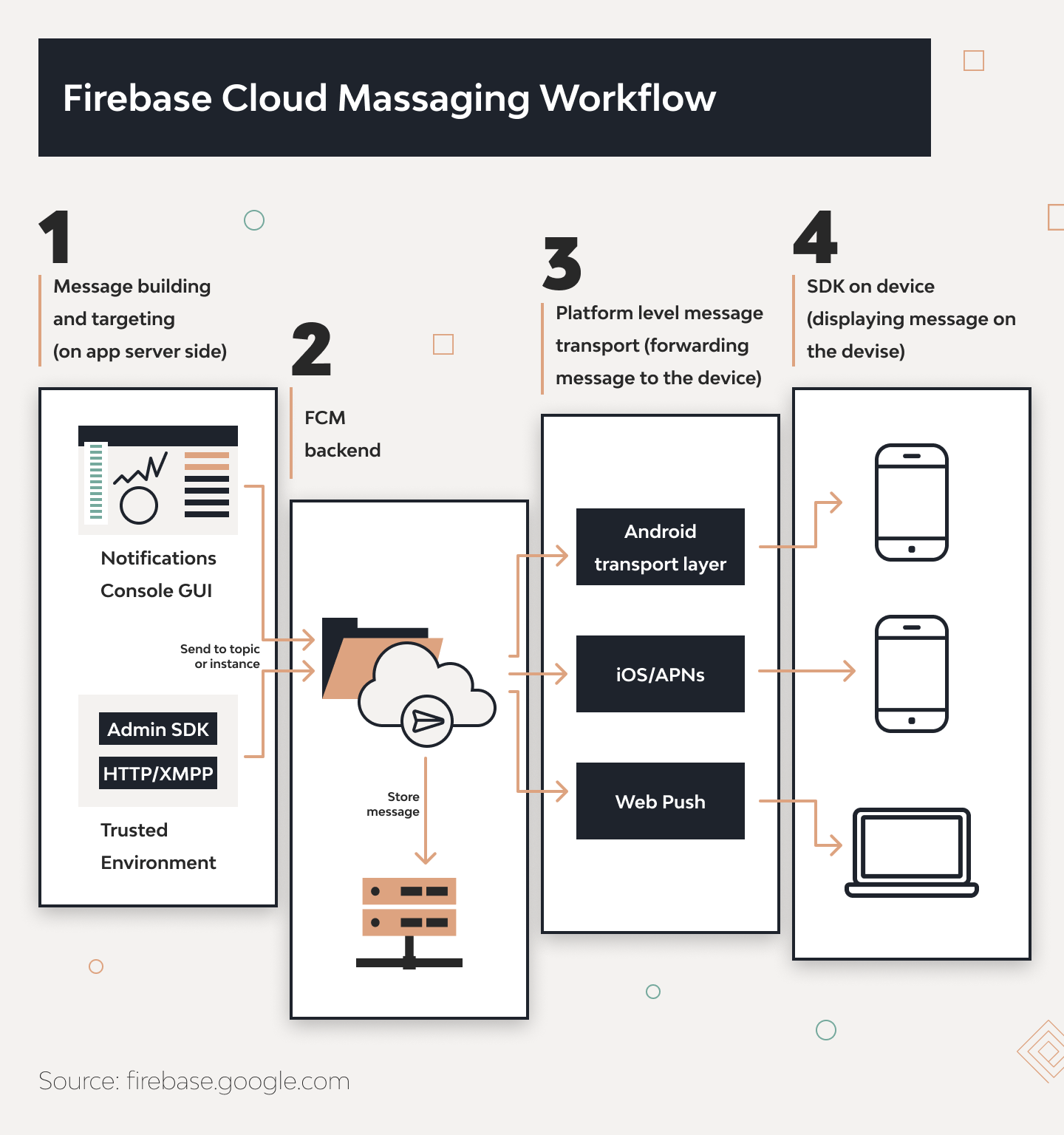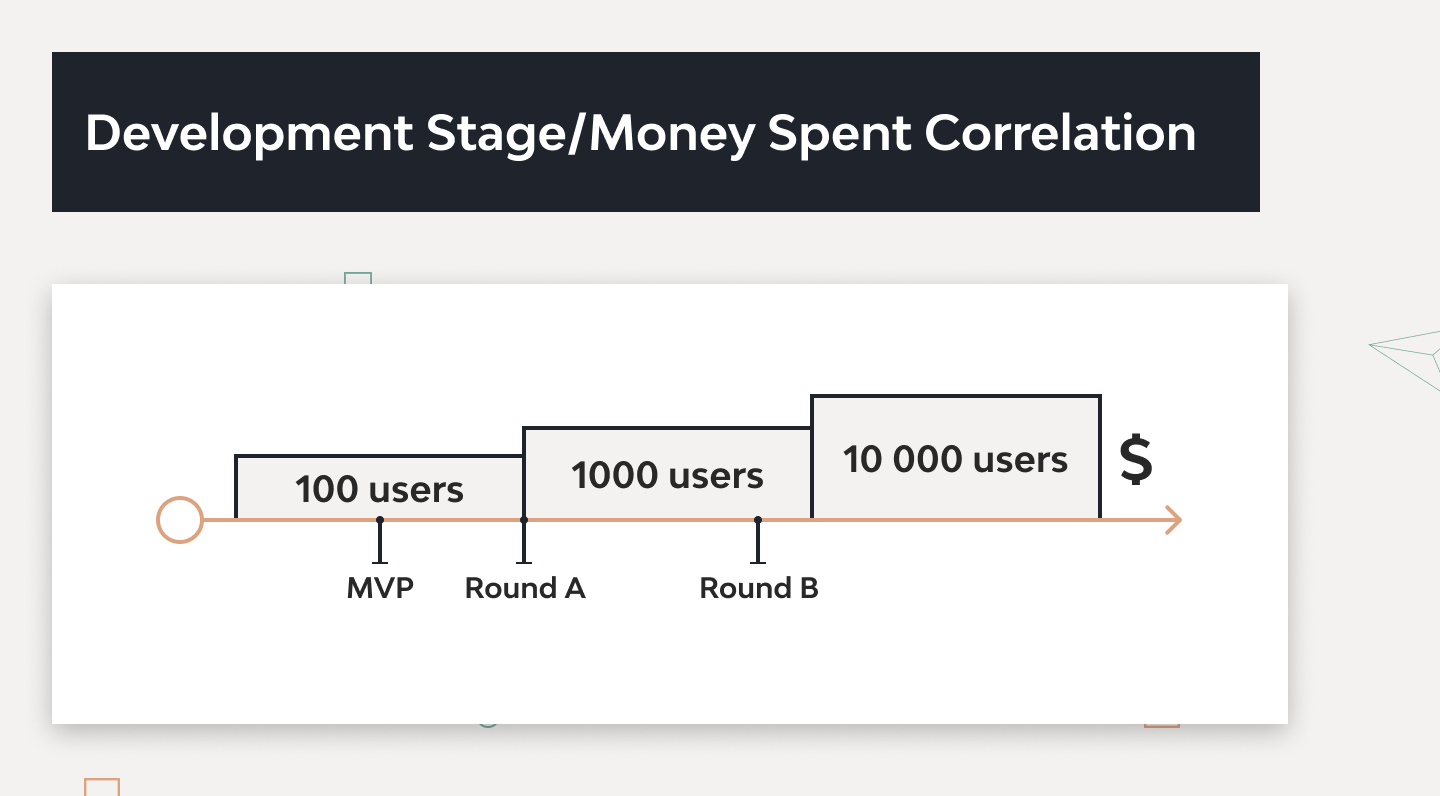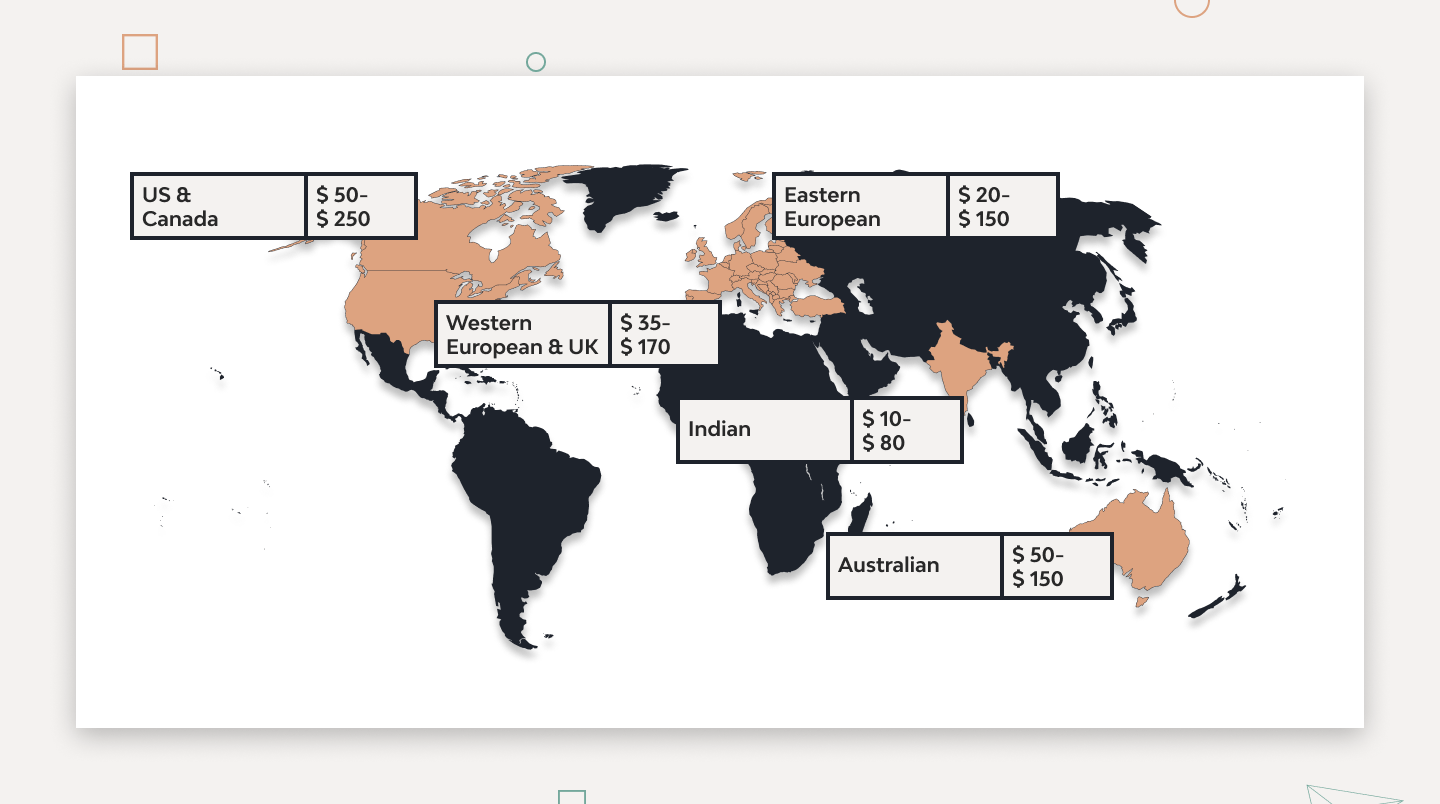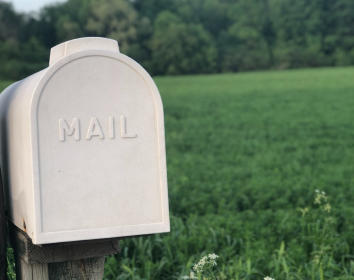How Much Does It Cost to Build a Messaging App

People can hardly imagine the world without WhatsApp, WeChat, and other popular messenger apps. They are loaded in almost every smartphone, and people send billions of instant messages, pictures, and videos through these technologies every day. Chat apps help us stay connected, share moments of our lives and have fun with family and friends, wherever they are. That’s why people love messengers so much. The average number of monthly users is unbelievable. According to research, WhatsApp tops the list of the most-used messaging apps in the world. The number of monthly active users has reached 2 billions. Possesing a high popularity, the chat app format opens up a wide spectrum of opportunities for product creators in their search of efficient solutions that users will love.
Listen to “How Much Does It Cost to Build a Messaging App” on Spreaker.
What does it take to make a chatting app that will win the hearts of over 25% of humanity (which is what WhatsApp seems to have accomplished)? What technology stack would it require? What’s the approximate cost of building a messenger app? Let’s look at how to build a messaging app like WhatsApp, and more questions in this guide.
Common Features of Messenger Apps
Before you learn how to create a messaging app like WhatsApp, you’ve probably tested the wares of your future competitors. If you have, you might have noticed that though the most popular messengers differ in certain ways, some features are found in all of them. In fact, they are indispensable for almost any chatting app. And you’ll need them in your app, too. Here they are.
Registration Page and Contact Integration
The first step of every messenger’s user journey is registration. There are various ways to identify a user and import their contacts. The most frequently used ones are verification by a phone number, or through email or social networking accounts.
Contact integration should be seamless for the user. In most messengers, this is done automatically, as soon as the user registers and enters their phone number. Don’t make people do it manually or wait too long. It takes them just a second to decide not to use the app and switch to a more convenient option.
It’s also important to consider cybersecurity and protection of the users’ data. Privacy in messengers is very much valued. If people discover there have been data leaks through the app, the one may say goodbye to millions of tech-savvy users and their friends.
As for the technology required, authentication usually includes third-party APIs or handy tools like the Facebook SDK, Android SDK, and others.
Profile Customization
The next big step in the user’s journey is profile customization. This is what makes the whole experience of messaging personal and friendly. People love to make the app space “their own”. That’s why the ability to choose a profile picture, nickname or wallpaper, share status, and see the status of a message — are all must-have features for any messaging app.
Again, there is talk of safety. Today’s chat apps store the data either directly on the users’ phone or on a separate server that is connected to the user’s phone number. If the number is changed, the app’s user experience collapses. So consider offering users a way to migrate their data to a new phone number, to perform a backup, or to delete the account.
As for the technologies required, there are two major options: ready-made solutions or development from scratch. For newly developed messengers (not with the audience as large as WhatsApp’s one), a comprehensive web development platform like Firebase would be a great solution. It is based on Google infrastructure and has a series of toolkits for user authentication, file storage, sending push notifications, etc.
For apps that will serve millions of users, ready-made solutions might delay the messaging process. In this case, you might have to develop your own push server, database, websockets and other elements from scratch.
Messaging
The next chat application feature is messaging. Once everything is set up, we get to the main point of the process: the messaging itself. From an app creator’s point of view, the following features must be included:
- Message status. Today’s users want to know if their message was delivered or not, if the recipient read it, and even if the message was edited. The new chat app creator should incorporate these options.
- Private and group chats. Initially messengers only handled one-to-one communication. But as these apps are mature now, group chats have become popular among users. Professional discussions, friendly talks, urgent needs – many of us have dozens of group chats for these matters. The users will expect to have them, too.
- Quick search. Instant messaging implies the possibility of finding files or messages. See the previous point. You don’t want to make the users scroll through everything looking for a specific message. It’s better to integrate a customer-friendly search function.
- Voice messaging. Opinions about voice messaging differ. Some people hate it. But many find it very handy, especially when they can’t type but want to share information quickly.
To implement all these features, a range of technologies is required. For the messaging part, XMPP is one of the industry standards. The protocol allows instant exchange of messages, is free, and is compatible with most programming languages.
Read more: How to create Telegram bot with Django (Tutorial)
The back-end includes database management systems like PostgreSQL, secure and scalable storage services (Nginx, Apache HTTP Server, etc.), and web servers that ensure content and application delivery (Amazon S3, Google Cloud Storage, Microsoft Blobs Storage and the like).
Video and Voice Calls
Voice calls are handy additions to an app. First, the features let users save cash on mobile calls, and second, they make people feel like they’re really talking. Implementing these features into your messenger app should definitely be on your to-do list.
A level-up option is group video calls. More efforts and technical skills are required to make this feature workable. However, for users, it will definitely add value to your app. It might allow you to grab a share of the market from other messengers that lack group video calls capabilities.
From the tech point of view, you will need to utilize Voice Over IP (VOIP) technology. Bear in mind that this will increase development time by an additional 200 hours.
Media File Sharing
Remember how we were talking about storage for conversations? The same story applies to file sharing. It’s hard to imagine a WhatsApp that doesn’t allow users to send pictures or videos to a friend. This option requires a fast-working multimedia file transfer system. No user wants to wait forever for a pic to be downloaded. They want it to happen in the blink of an eye.
To perform media file sharing, the app should have permission to access the database. Moreover, a lot of data is stored in the form of text or images, and the transfer system requires binary data. Here’s when Base64 encoding becomes handy. This technology also helps speed up file downloads from external servers.
Tracking Location
This chat application feature is a big help when you find yourself in an unknown place or are looking for a meetup point. But it’s important to inform users that the messaging app is collecting information about your location and tracking one’s route. It should also be possible to disable the option. Though this feature can also raise eyebrows (not everyone wishes to be spied upon), the majority of messenger users do want to share their location with friends or find a route to get somewhere without having to fire up Google Maps.
For Android-based apps, our team usually uses the Google Location SDK or Google Map Android API. For iOS based apps, we use Apple MapKit.
Read more: How to Build a GPS App with React Native
Push Notifications
In our hyperconnected world, everyone wants to know immediately about incoming messages or when someone is online. Or, on the other hand, they want to mute such notifications. So notifications have to be as instant as the messaging itself. Google Cloud Messaging or Apple Push Notifications technologies will work for that.
Latest articles right in your inbox
What Affects the Cost of WhatsApp Like App Development?
Here comes the most sensitive matter: the money talk. How much does Facebook messenger cost? Or WhatsApp? What variables affect the cost of building an app like WhatsApp?
1. Technical complexity
First of all, the finances required depend on the technologies built into the messenger.
As you see, creating a WhatsApp-like messenger requires certain third-party integrations like XMPP server for real-time communication, cloud storage for conversations and media files, push server for sending push-notifications, web sockets, etc. In fact, the tech stack strongly depends on functions the app should have, issues it should solve and number of active users.
The appealing front-end part includes a responsive user interface, design, etc. One of the cornerstones here is quicking load of every page and the ability to intuitively understand the app’s mechanics.
The back-end part requires quick and quality work with databases, since the users expect the instant part of the messaging experience to run smoothly. Requests to databases should run effortlessly, and servers should be able to handle app scaling and an increasing number of user inquiries.
From our experience, it is better to start developing the back-end with a ready-to-go solution, like Firebase Cloud Messaging (FCM), that allows to process messages quickly and does not require an overly complicated implementation.
However, the described solution works only if your app is newly developed and doesn’t have a lot of users (to illustrate, 10000 is a relatively small number). But as soon as your app will gain more popularity and the number of users will increase to millions, you’ll have to scale it and develop your own components, since the ready-to-go ones will not be able to handle the increased number of requests. For instance, you’ll probably need to develop and implement your own and self hosted push server, database, and web sockets.
And don’t forget the admin panel, which provides levels of access to chats or files and makes the whole experience more structured. You might also want to include in-app purchases for another channel for app monetization. All this requires various technologies you will have to pay for.
2. Devices and OS
Is your messenger for desktop only? Mobile? Android or iOS? The answers to these questions will dramatically influence the price of development. Most popular messengers start with a mobile version to attract users and later proceed to the desktop project (Facebook Messenger is one of the exceptions to this general observation).
Since development of a native application for each operating system (separately for Android and iOS) is costly, it’s better to stick to a universal multi-platform solution. From our experience, at the MVP stage of the product development, this will be enough and some to spare. Sure, the app will have less native functions supported by iOS or Android, but at the very start of the product development you don’t need it to be all polished. It’s more rational to develop a perfectly working draft version, gain investments with it, attract first users and improve the product according to their expectations. There’s no worse scenario than spending a fortune on development of native MVP versions, while having no users, who may come or may not. And if they don’t, it will be almost impossible to gain the investments. Which is not a problem, if you’re Elon Musk (though, even he may have tough times with investors). But if you’re on a limited budget, you might need those investments. So, don’t take the stakes high. Keep it rational and don’t waste money.
Here you may see how the number of users, stage of the product development and the money spent correlate. The bottom line is that to gain investments you need a basic MVP version. Even if you’re not looking for VC-backed support, it is better to save the money at the beginning and spend it in the future, when you’ll have users and will definitely know what they need.
In addition, remember that the major OS developers are constantly updating their software, you will have to update the versions of the chat app as well. The range of OSs and devices can double or triple your initial cost estimates.
Read more: Web Application Development Costs
3. Custom design
The next factor that affects the cost of developing an application like WhatsApp is the user interface (UI). Though it might seem unfair for you as the project creator, design is sometimes the thing that finally makes users love or hate the app. The obvious hint is: creating a great look for your app requires your special attention.
On the one hand, you might opt for a ready-made template. Standard components on these are usually less pricey than the custom-made options. On the other hand, it’s hard to achieve uniqueness with something initially made for mass-market use. So, consider working with a professional designer and add their fee to the future cost of the app.
4. Development company’s location
The hourly rate of the development team will also impact the overall price of the project. And the overall price will depend not only on the qualifications of the team members, but on geography. A US-based company will charge much more than one from Eastern Europe or India. Here’s proof:
How Long Does It Take to Develop a Chat App?
Obviously, the number of hours required for development will correlate with the number of features you want to see in your app and its complexity.
Below, I provide minimal estimates for a minimum of features required to create a messaging application.
| Feature | Time Estimates |
|---|---|
| User registration and address book | about 12-16 hours |
| The messaging feature | minimum 200 hours (final estimate depends on the product’s complexity) |
| Multimedia file transfer development | 12-16 hours |
| Convenient contact sharing | 8 hours |
| Location | about 8 hours |
| Voice and video calls | starting from 200 hours (depending on the product’s complexity) |
| Establishing settings | 8 hours |
| Design (UX/UI) | at least 100 hours for prototypes |
As you can see, creating a WhatsApp-like app will take minimum 550 hours of development time. But remember that this is just a rough estimate and the total can be two- or three-fold bigger depending on what the end product should include. If you let us know about your idea, we can provide more precise calculations for your individual app project.
The Challenges of Building a Chat App
The most obvious challenge is that there are already many similar apps out there. You’ll need to be especially creative to invent something that will convert new users to your app and away from well-known products. Still, new chat apps appear regularly. So, to make one that’s useful and usable, certain challenges must be overcome.
Cybersecurity
Some of the most popular chat apps boast of having end-to-end message encryption that is impossible to hack. Time will tell whether these claims are true or not. But the matter of data security is what keeps people away from using an unknown chat app. Adding several levels of protection, data encryption, and a safe location for the servers is a must for the initial development stage.
One-stop-shop expectations
Any forthcoming messaging apps should include additional options like launching ad campaigns, the ability to make peer-to-peer payments and store large volumes of information. Users expect their messaging app to be a one-stop-shop for all their important online activities. And don’t forget the entertainment aspect.
Always new in the long run
How do you attract and retain users in the ever-changing online world? The answer is – there is no ideal answer. That is the most complicated hurdle for every new messaging app: how to stay interesting, over and over again. Here’s where the app creator needs to be savvy, constantly update the app, add new features, take away obsolete ones and always know what’s going on in the tech world. We, at Django Stars, work on projects continuously to keep apps on the top of the list.
Wrap Up
Making a messenger app is a complicated process. It takes various technologies for each part, and over 550 hours of development. You should plan to include secure and scalable data storage, encryption, speed, and an appealing user interface. A trusted development partner will be helpful for any creator of a brand-new messenger. We can work together with you on your project and come up with an optimal solution.
- How much does it cost to build a messaging app like WhatsApp?
- The cost of app developing is determined by the amount of time that it requires and the hourly rate of the specialists involved. Creating a WhatsApp-like app will take a minimum 550 hours of development time. But remember that this is just a rough estimate and the total can be two- or three-fold bigger depending on what the end product should include.
- What features are must-have for a messaging app?
- Registration page and contact integration
- Profile customization
- Messaging
- Video and voice calls
- Media file sharing
- Tracking location
- Push notifications
- What technologies are used in the development of chat applications?
- To implement the main chat application features, a range of technologies is required. For the messaging part, XMPP is one of the industry standards. The protocol allows instant exchange of messages, is free, and is compatible with most programming languages. The back-end includes database management systems like PostgreSQL, secure and scalable storage services (Nginx, Apache HTTP Server, etc.), and web servers that ensure content and application delivery (Amazon S3, Google Cloud Storage, Microsoft Blobs Storage and the like).
- How to reduce the cost of developing a messaging application like WhatsApp?
- It makes sense to first create a basic MVP version to gain investments. Even if you’re not looking for VC-backed support, it is better to save the money at the beginning and spend it in the future, when you’ll have users and will definitely know what they need. You should also consider other variables that affect the cost of building an app like WhatsApp, including technical complexity, the range of OSs and devices, custom design, and development company’s location (which affects hourly rates).
- How to hire the right chat app development team?
- When choosing a software vendor, there are many factors to consider, from developers' experience in implementing similar projects and hourly rates of specialists, to the engagement model and alignment with your company's values. Don't hesitate to contact Django Stars and discuss all the details of your project with our experts.

